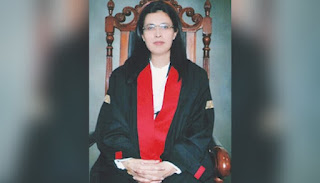Legendary Actor Dilip Kumar
Amazing Bollywood entertainer Dilip Kumar — probably the greatest star in the brilliant period of Indian film from the 1940s to the 1960s — died on Wednesday at 98 years old.
"With overwhelming sadness and significant anguish, I declare the dying of our cherished Dilip saab," Faisal Farooqui, a family companion, posted on Kumar's true Twitter.
As indicated by the Hindustan Times, Kumar had been conceded to the emergency unit June 30 to "address clinical issues" identified with advanced age. He was before conceded to a similar clinic on June 6 subsequent to encountering windedness.
Kumar is made due by his significant other, Saira Banu, a well known driving woman in Bollywood during the 1960s and 1970s.
Sympathies poured in as Bollywood and government officials the same grieved the deficiency of the entertainer. Indian Prime Minister Narendra Modi said that Kumar will be recognized as a "true to life legend".
"He was honored with unmatched brightness, because of which crowds across ages were excited. His dying is a misfortune to our social world," he said.
"To the world numerous others might be saints. To us entertainers, he was The Hero. #DilipKumar sir has taken a whole time of Indian film away with him," said entertainer Akshay Kumar.
Entertainer Ajay Devgan reviewed the numerous minutes he imparted to Kumar. "A foundation, an immortal entertainer. Crushed," he said.
Profession
Nicknamed "The Tragedy King" due to his agonizing great looks, disheveled hair and profound voice, Kumar played the lead in a portion of the Indian entertainment world's most financially fruitful movies of the period, procuring him notorious status.
Be that as it may, albeit a Bollywood legend, he passed up worldwide distinction in the wake of turning down the opportunity to play Sherif Ali in David Lean's 1962 exemplary Lawrence of Arabia. The part went to an Egyptian entertainer, Omar Sharif.
Kumar was conceived Yusuf Khan on December 11, 1922 in Peshawar, then, at that point some portion of British-administered India. His dad was an organic product dealer who took his family to India's diversion capital during the 1930s.
Be that as it may, the child betrayed the opportunity to assume control over the firm when the entertainer Devika Rani spotted him on his dad's organic product slow down in the then Bombay, prompting a section in his first film, Jwar Bhata, in 1944.
Rani convinced him to change his name, so he picked Dilip Kumar, permitting him to shroud what he was doing from his opposing dad.
In spite of the fact that Jwar Bhata tumbled and driving film magazines reprimanded his presentation Kumar was resolute and in the long run got through with the 1946 film Milan.
Among his most recalled jobs was in the extravagant chronicled sentiment Mughal-e-Azam, in view of the existence of one of India's extraordinary Mughal sovereigns.
The film, delivered in 1960, was eight years really taking shape and cost an amazing 15 million rupees, however before long got one of Bollywood's greatest netting movies ever.
Kumar, who refered to Hollywood greats Marlon Brando, Gary Cooper and Spencer Tracy as impacts, later won praise in 1964 for the nationalistic Leader, screened against a background of late fights China and Pakistan.
The 1970s saw less jobs, as more youthful entertainers like Amitabh Bachchan became the dominant focal point.
He even required a five-year break after a series of lemon, returning in 1981 with the hit Kranti (unrest) and a section close by Bachchan in Shakti (strength) the next year, in addition to a line of character jobs.
Entertainer and official
After a progression of seriously got films, he took up a more dynamic job in governmental issues in 1998 and attempted to end the quarreling among India and Pakistan.
That very year saw him get the most elevated non military personnel honor in Pakistan, rankling Hindu patriots. After two years he turned into an official for the then-resistance Congress party.
Not at all like numerous entertainers who showed up in many movies, the adaptable Kumar painstakingly chose those, by Indian guidelines, which just expanded his height in the wildly cutthroat industry.
In 2006 he acknowledged a lifetime accomplishment grant at India's National Film Awards in acknowledgment of his commitment to Indian film.
However he actually conceded that he was bewildered at his prosperity.
"Truly, I've still to sort out how a strongly modest youngster called Yusuf Khan turned into the entertainer Dilip Kumar," he revealed to The Hindustan Times in a meeting to check his 85th birthday celebration.


Comments
Post a Comment